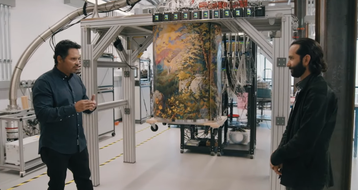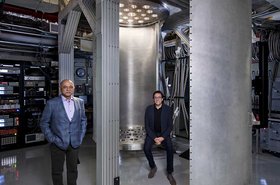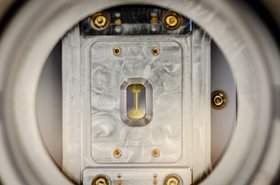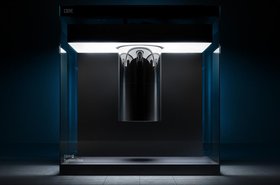Google has opened a new site to host its quantum computers, and serve as the R&D hub for future developments.
The new facility comes as the company pledged to develop a commercial-grade quantum computer by 2029, creating a system that would fundamentally revolutionize computing.
Alphabet makes a big bet in Quantum
Google has been working on quantum computers for years, building Bristlecone and other quantum chips. In 2019, it claimed quantum supremacy - where it was able to outperform classical computers on a very specific workload.
"But one problem we face today is that our physical qubits are very fragile - even cosmic rays from space can destroy quantum information," Google CEO Sundar Pichai said at the company's I/O conference.
Instead, Google now hopes to build 'error-corrected logical qubits' which are simply a collection of physical qubits stable enough to hold quantum information for a long period of time, that together form one logical qubit.
"We start by reducing the error rate of our physical qubits, then combining a thousand physical qubits to create a single logical qubit, and then scaling that up to a thousand logical qubits," Pichai explained. "At which point we will have created an error-corrected quantum computer," with 106 physical qubits.
Pichai added: "The roadmap begins in our new data center, which we are calling the Quantum AI Campus." The facility in Santa Barbara County includes a data center, research labs, and chip fabrication site, across several buildings, and is set to employ hundreds over the next few years.
In a video inexplicably featuring Chips actor Michael Peña, the new facility's lead engineer gave a brief explanation of Google's quantum progress and ambitions.
"We built this campus to inspire all of our quantum mechanics and show the world what the future of compute looks like," Erik Lucero said.
"To date, we have reached the first milestone, beyond classical computation capabilities," he added. This statement is contested by Google's quantum competitors and some researchers, who note that workload optimization was able to reduce the difference between the Google system and conventional systems.
It is also only for one very specific workload, and not all workloads.
"Everything you've seen here today is what we're using to get to our next milestone, an error-corrected logical qubit," Lucero continued. "And from there we'll tile thousands of those together to build an error-connected quantum computer."
Speaking to the Wall Street Journal, the head of Google's Quantum AI program, Dr. Hartmut Neven, said that the company planned to build that commercial-grade 1-million-qubit quantum computer by 2029.
“We are at this inflection point,” Dr. Neven said. “We now have the important components in hand that make us confident. We know how to execute the road map.”




